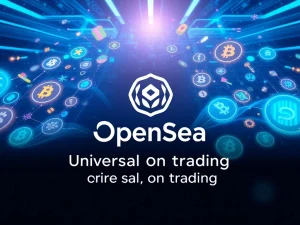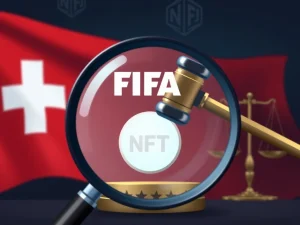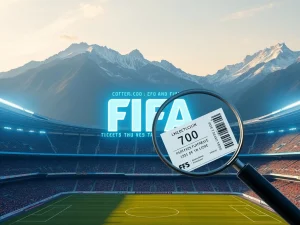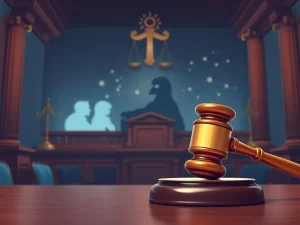Shocking Turn: U.S. Court Overturns OpenSea Ex-Exec’s NFT Insider Trading Conviction

In a stunning legal twist, a U.S. federal appeals court has overturned the NFT insider trading conviction of Nathaniel Chastain, a former OpenSea executive. This landmark decision could reshape how crypto regulations are applied to digital assets.
What Led to the OpenSea NFT Insider Trading Case?
Nathaniel Chastain, OpenSea’s former product manager, was convicted in 2023 for allegedly using confidential information about upcoming featured NFT collections to make profitable trades. Key details of the case include:
- Chastain purchased NFTs before they were promoted on OpenSea’s homepage
- He resold these digital assets at significantly higher prices
- The original conviction carried a 3-month prison sentence and 3 years supervised release
Why Did the Court Overturn the NFT Insider Trading Verdict?
The 2nd U.S. Circuit Court of Appeals ruled that the jury received flawed instructions about what constitutes fraud in this crypto regulations case. The judges emphasized:
| Original Conviction | Appeals Court Ruling |
|---|---|
| Based on broad interpretation of fraud | Requires misuse of tangible property right |
| Punished unethical behavior | Must involve property interest violation |
How Does This Impact Future Crypto Regulations?
This legal precedent creates important questions about applying traditional laws to digital assets:
- Clarifies boundaries for insider trading in decentralized platforms
- Highlights challenges in regulating fast-moving NFT markets
- May influence future SEC actions in crypto space
What’s Next for OpenSea and NFT Markets?
While prosecutors could seek a retrial, this ruling already affects how platforms handle internal information. The case also revealed that OpenSea’s co-founder Devin Finzer allegedly made similar trades before the Polygon integration announcement, though no determination was made about rule violations.
This groundbreaking decision forces us to reconsider how crypto regulations apply to emerging technologies. As digital assets continue evolving, courts and regulators must adapt legal frameworks to address these complex scenarios without stifling innovation.
Frequently Asked Questions
What was Nathaniel Chastain originally convicted of?
Chastain was convicted of wire fraud and money laundering related to alleged NFT insider trading while working at OpenSea.
Why did the appeals court overturn the conviction?
The court ruled the original trial improperly defined fraud, requiring proof of property right misuse rather than just unethical behavior.
Could there be a retrial in this NFT case?
Yes, prosecutors could pursue a retrial using proper legal standards, but no decision has been announced yet.
How does this affect other crypto insider trading cases?
This sets a precedent that may influence how courts handle similar digital asset cases in the future.
Did OpenSea’s co-founder face similar allegations?
Chastain’s defense raised claims about Devin Finzer’s trades, but the court made no determination about their legality.








